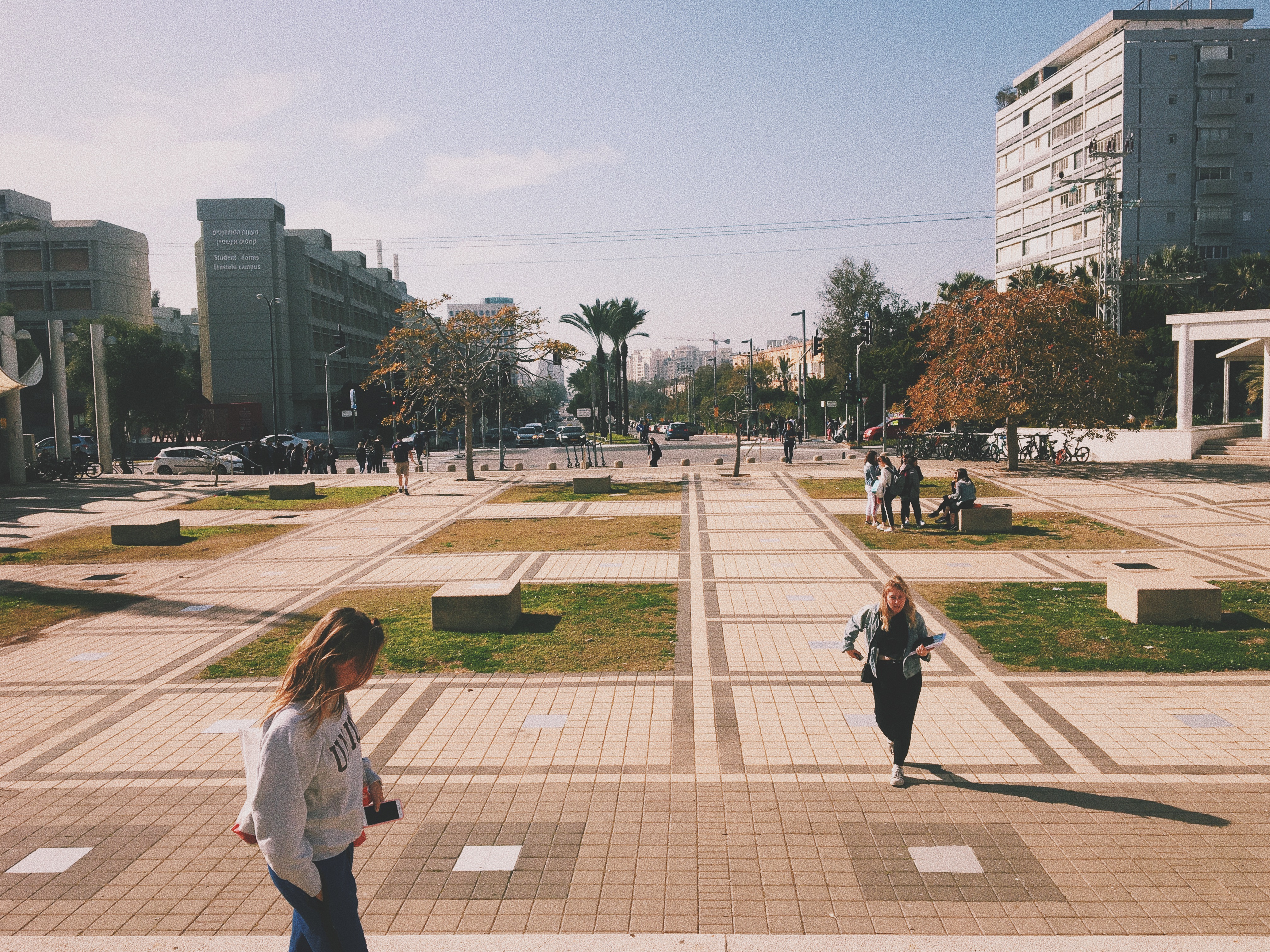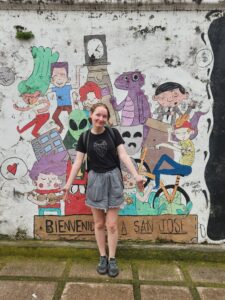Sitting down to write this, I’ve just realized that I moved into my apartment in Tel Aviv almost a week ago. In those seven days, my expectations have been exceeded, and each day I learn more and more about the fascinating culture and country of Israel.
On Tuesday, Jan. 14, I moved into the Midtown Tower in Central Tel Aviv and found that I’d been placed in an apartment on the 46th floor. The city is full of skyscrapers and some of the most modern architecture I’ve ever seen, and my apartment’s balcony gives a breathtaking view of it all. Being from the woods of Maine, it’s a stark contrast to what I’m used to.
I’m getting accustomed to walking everywhere. The market and the beach are less than two miles from my apartment, and to say the weather is beautiful is an understatement. My heart goes out to all those at University of Maine right now battling the cold.
Studying abroad in Israel is quite different than in many other countries. For starters, everybody who moves to Israel, whether it be to make Aliyah and join the Israeli Defense Forces, to work, or just to study abroad for a semester, takes a mandatory intensive Hebrew language class called an Ulpan. The classes last either a month, as mine does, or six weeks if they take place in the summer; they consist of fast-paced instruction in Hebrew of four and a half hours a day. Though it may sound a little exhaustive, the teachers are all incredibly passionate and caring and have impressive backgrounds in the study of linguistics. Teaching Ulpan seems to be a sort of honor, a duty to the country, to spread the language and keep it alive.
I should also clarify that making “Aliyah,” which I just mentioned, is a common thing to hear in Israel. It refers to the immigration of Jewish people from around the world to Israel and is a staple of Zionism, the movement to develop and protect the Jewish state of Israel. So coming to Israel for any extended period requires some learning of the language, to continue to develop the country. Thus, we have Ulpan – which is pronounced “ool-pahn.”
After a week of Ulpan, the first week I’ve ever spent really focusing on learning a language, I have realized the strain that this learning process puts on the brain. I came to Israel knowing the Hebrew alphabet, which, just to clarify, looks nothing like the English alphabet. I also knew a collection of vocabulary words, some verbs, and a thing or two about the grammar – but not much. I found out on the first day that very little English would be spoken during Ulpan, and the concentration it takes to follow along is astonishing.
In addition to learning Hebrew, I am also getting used to being in a country that is predominantly Jewish. Again, coming from a small town in Maine, I have always been a religious minority. In middle school, my sister and I came from one of two Jewish families. I grew up facing questions such as “do you celebrate Thanksgiving?” and eating Chinese food for Christmas. Here, nearly all the study abroad students are Jewish, as are the people in Tel Aviv and the rest of the country. Israel in general operates on Jewish laws, and I’ve never felt more at home.
For example, the workweek and school week here is Sunday through Thursday, because Shabbat, the Jewish Sabbath, begins Friday at sundown and ends Saturday at sundown. On Sunday morning we wake up and go to class as if it’s Monday, and we have every Friday off, an adjustment that took getting used to.
Unlike in America, the Sabbath is observed by most of the country; around 4 p.m. every single Friday, most grocery stores, restaurants, gyms, offices and public transportation close until about 6 p.m. on Saturday evening. My roommates and I were not prepared for this at all and as a result had very little for dinner on Friday night. Next week we’ll plan to go grocery shopping on Thursday.
Yet despite the minor inconvenience and our bad planning, being in a country where I’m part of the religious majority is an incredible experience. There’s something new and different about being in this country living with people who nearly all have at least this one core thing in common with each other.
This isn’t to say that everybody in Tel Aviv is Jewish – there are plenty of non-Jewish students in the program who came to Israel for various reasons. Many, including myself, are interested in the conflict in the Middle East, and being in a country that has war zones just a couple hours away certainly allows me to look at it all from a new perspective.
Just this past Sunday, Iran-linked forces in Syria fired rockets at Israel that were intercepted by the Iron Dome, Israel’s aerial defense system. The Iron Dome is a single machine that gauges the threat level of oncoming missiles (whether they’ll land in open space or in an inhibited area) and decides whether to shoot down the missiles from the sky. It does all this in the span of 1.5 seconds, and is moved around Israel to protect the entire country and make it difficult for enemies to plan attacks. In retaliation to the rockets, Israel fired back on Monday with a strike on the forces in Syria. And all this happened about two hours from the couch I’m sitting on right now.
In just a week, I have settled in, started to learn my way around and figure out a thing or two about living in Israel. We’ll see where I stand with my Hebrew by this time next week. L’hitraot! (Goodbye!)








